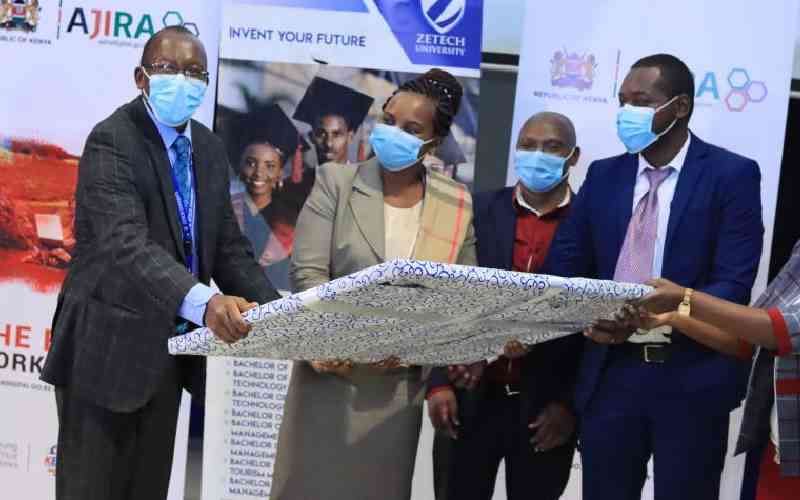One of the greatest challenges facing the Government, and even previous regimes, is employment creation.
Since the advent of multipartism, job creation, especially for the youth, has been the foundation of many party manifestos. Many have made it in politics on this one promise to the youth. However, the process of job creation has had many starts, most of them false and heartbreaking for the youth.
Their hopes of earning a decent living have often ended up in smoke as politicians either renege on their promises or mishandle noble initiatives aimed at creating employment opportunities.
There is yet to be an audit of how many jobs the Narc Government created on its 500,000-jobs-a-year pledge. However, statistics indicate unemployment among the youth is still as high as it was six years ago.
More than two million youth are unemployed and analysts say the numbers could rise to over 10 million in the next seven years.
After the 2002 job creation promise foundered, the Youth Enterprise Fund was launched in 2007 to encourage entrepreneurship of middle level businesses, which economists say is an important link in development and job creation.
According to the Ministry of Youth Affairs, the fund has had impact, though there is yet to be a public financial report on lending and repayment.
In March, another Sh15 billion initiative to create employment for the youth was started.
Dubbed Kazi Kwa Vijana (KKV), the initiative launched by President Kibaki and Prime Minister Raila Odinga aims at creating about 300,000 jobs countrywide. But barely six months later, there are fears the initiative is another non-starter.
Raila has raised the alarm that KKV could collapse due to slow release of funds by the Treasury.
Reports say projects — mostly environmental cleanup, road repairs and construction — have ground to a halt.
The PM’s office has said about Sh6.6 billion has not been accounted for and some projects never took off.
It has emerged that expenditure is not strictly vetted and monitoring is almost lacking, giving room for misuse and embezzlement.
The project is also dogged by lack of money because Treasury says it is stretched to the limit by ‘expenditure on food and other projects’.
While we are not lost to the fact that the Government has been grappling with budgetary deficits, a programme such as KKV should have been well planned. The Government should have devised a more sustainable way of getting the project running.
Stay informed. Subscribe to our newsletter
Why, for example, spend so much money to buy equipment that would be grounded after a short period — like is the case with many KKV projects?
Initiatives with heavy public cost should be well thought out. The country has eight provinces with different potentials and needs and it makes little sense to devise a uniform programme for all areas.
For years, there have been calls to make Government expenditure and procurement public. For a start, the Government should make public the allocation and expenditure of KKV money.
There is also folly in devising projects that use money and make none because in the end such initiatives are hard to sustain.
 The Standard Group Plc is a
multi-media organization with investments in media platforms spanning newspaper
print operations, television, radio broadcasting, digital and online services. The
Standard Group is recognized as a leading multi-media house in Kenya with a key
influence in matters of national and international interest.
The Standard Group Plc is a
multi-media organization with investments in media platforms spanning newspaper
print operations, television, radio broadcasting, digital and online services. The
Standard Group is recognized as a leading multi-media house in Kenya with a key
influence in matters of national and international interest.
 The Standard Group Plc is a
multi-media organization with investments in media platforms spanning newspaper
print operations, television, radio broadcasting, digital and online services. The
Standard Group is recognized as a leading multi-media house in Kenya with a key
influence in matters of national and international interest.
The Standard Group Plc is a
multi-media organization with investments in media platforms spanning newspaper
print operations, television, radio broadcasting, digital and online services. The
Standard Group is recognized as a leading multi-media house in Kenya with a key
influence in matters of national and international interest.







